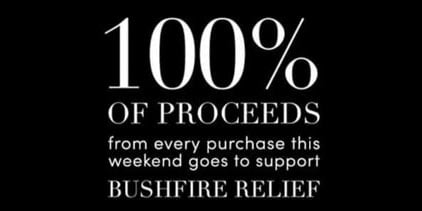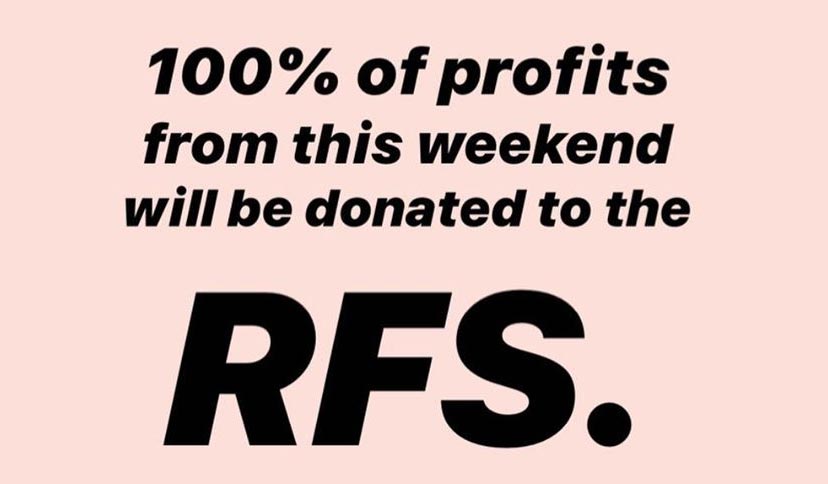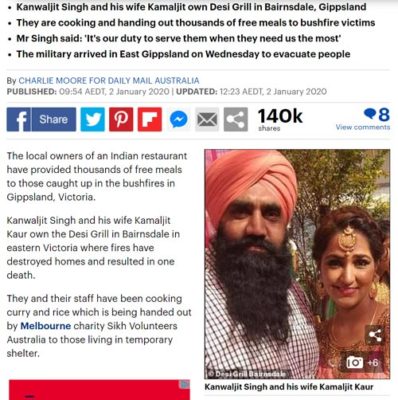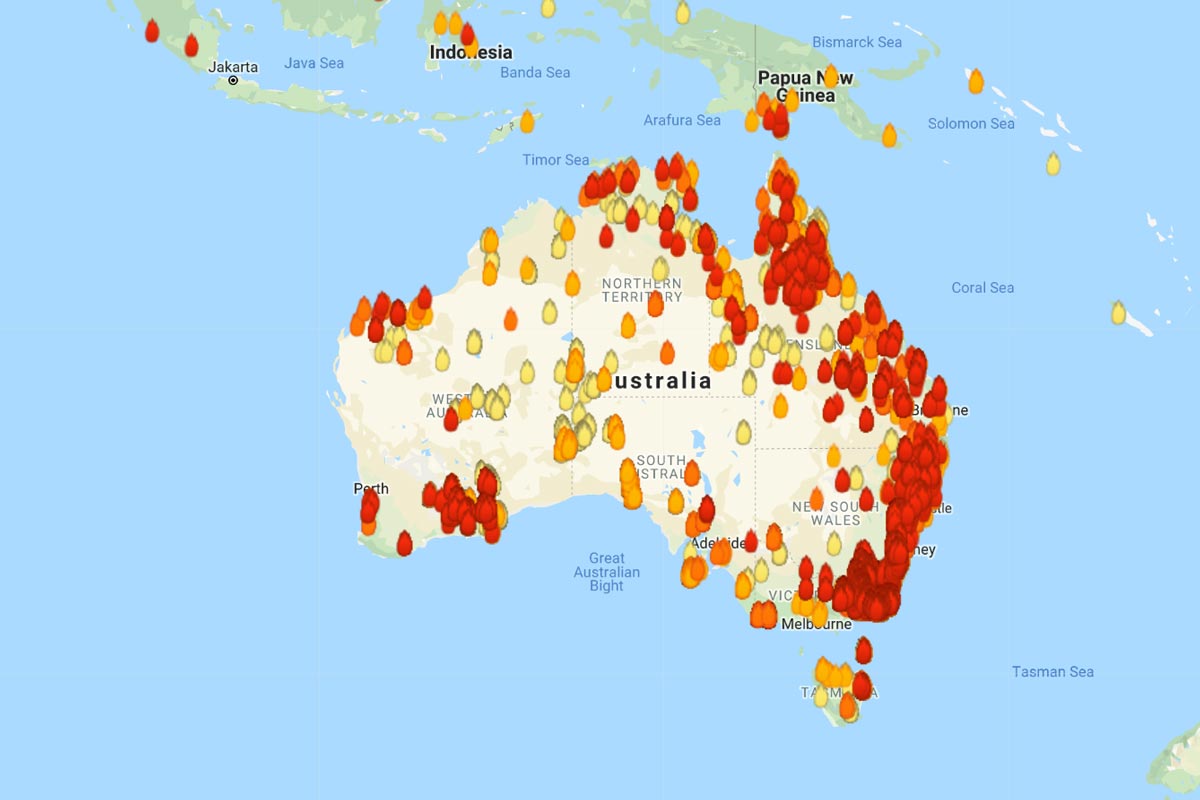If you think a catastrophic incident is a marketing opportunity for your business, then please take a long, hard look at yourself.
Facebook feeds are inundated with catastrophic photos of Australian fires, questions on how to donate and hatred for the Australian Prime Minister (aka: the villain).
With headlines such as these, we have a right to feel vulnerable and scared.
- Australia Fires Map: Where are the fires in Australia – The UK Sun
- Australia Is Committing Climate Suicide – New York Times
- Sky turns ‘as dark as night’ in Mallacoota bushfire – 9News
- 17 dead, 18 missing, 1,400 homes lost, 5 million hectares burned and 500 million animals dead: What you need to know about Australia’s bushfire crisis – as tens of thousands flee ahead of apocalyptic conditions on Saturday- Daily Mail
- Nearly Half A Million Creatures Have Died in Australia’s Bushfires – Conde` Nast Traveller
I have watched and read how other businesses have handled the situation.
Most businesses, have done the right thing. Other businesses… well, to put it simply, are taking advantage of a horrible situation to boost sales.
And therefore I cringe.
Marketing has changed considerably in my 20+ years experience. Digital marketing and people’s bullshit-o-meter is the main cause of the change.
There is a right way and a wrong way for businesses to approach this national crisis.
Let me explain.
You are benefitting the community in a catastrophic event when you:
1. DONATE MONEY STRAIGHT TO THE SOURCE.
In a crisis – cash is king.
Cash enables much needed food, goods, equipment and resources to be purchased appropriately.
Donating cash (ideally) ensures the money will be sent to people who need it most (ie: firefighters, animals, bushfire survivors and their families). You can donate a variety of ways:
To firefighters and bushfire survivors
These include organisations like:
- Australian Red Cross Disaster Recovery and Relief (who are partnering with the ABC)
- Salvation Army Bushfire Appeal
- Or you can donate at a local level directly to your Rural Fire Service – RFS NSW or Country Fire Authority – CFA Vic
To animal aid
With nearly 5 million animals gone, we still need to look after all the other animals that are suffering. This ranges from wildlife to cattle to pets. Much of our resources are needed to take care of these animals.
Donating to these organisations are tax deductable.
If these organisations don’t appeal, then check the regulator www.acnc.gov.au to make sure the charity you are interested in donating to, is actually registered (which is required by law). If it is, then look at when it was registered. Ensure the organisation is legitimate with a long track record.
Once you’ve donated money – then by all means, let us know on social media.
I genuinely want to know which businesses have helped in this way. This establishes much respect and trust. If you are a business that behaves like this, then if I ever require your product or services, you are now on my radar.
2. DON’T FORCE PEOPLE TO BUY YOUR PRODUCT IN ORDER FOR YOUR BUSINESS TO ‘DONATE’.
If you are serious in donating in the first place, then take a look at your profits from last month, last quarter or last year and donate that. Use past profits.
Whether it is $10 or $10,000 – it doesn’t matter as you are donating what you can based on your profit.
Or just simply donate what you can at the time. This gesture is more accountable and altruistic than the option of forcing people to buy.
At the moment, I am seeing many businesses promoting 100% of profits to be donated from an upcoming weekend sale, monthly sale and even until the end of February.
Such examples are:
“100% of profits from this weekend will be donated to the RFS. Our hearts are breaking for our country and those who are fighting this battle. Shop with us in store and online to support a worthy cause” – from a small boutique business
“100% of proceeds from every purchase this weekend goes to support bushfire relief” – from a large international boutique business


Their intentions may be honourable, however, it does come across as taking advantage of a horrific situation.
Take the example below:
Why would I pay $69.95 for a top for 100% of the proceeds to be donated?
The questions rolling in my mind are:
- How much of my money is actually going to be donated.
- What exactly is your profit margin? 60%, 40% or is it 20% of the total cost?
- What exactly does ‘proceeds’ mean? Does this mean I purchase my top and my price of $69.95 is donated to bushfire relief?
- I’d imagine wholesale cost of the product is taken way, but what about operational costs like wages, packaging, shipping costs or electrical costs… will that be wavered so more can be donated?
- How will I know you will actually donate?
- Won’t the profit you donate be a tax deduction, which you receive back at tax time anyway?
- Wouldn’t it be better for the firemen and bushfire victims if I forgo buying the top and just donate the $69.95 to a charity myself?
I love buying clothes. But I am now sickened to see businesses will donate based on the amount of clothes they sell this weekend. Why force or guilt people to buy in order for you (the business) to donate?
3. CREATE A COMPETITION FOR YOUR PRODUCT OR SERVICE
If you want to help and business finances are tight, then run a competition. You can give away a service or product, with the entry being a donation directly to a charity.
Kate Toon, a copywriter and SEO specialist from Sydney, offered a fundraising competition on her instagram page and in her private Facebook group ‘I love SEO with Kate Toon’.

Emailing a receipt of your donation of at least $20 directly to Red Cross Association, allowed you to enter into a draw to have your SEO, design and copy on your website reviewed by Kate Toon herself.
She was inundated with receipts from her 8000+ followers and helped raise money directly to the source, without having to buy her services directly to do so. My admiration for Kate Toon and being community minded stepped up to a level.
4. DONATE PRODUCT AND/OR SERVICES
No matter how big or small your business is, there may be something in your range you can donate.
If all you can afford from your business is one thing – then it is SOMETHING and I applaud you.
Desi Grill Bairnsdale, in Gippsland area, opened their restaurant so donated food could be cooked for firefighters and bushfire survivors. This is a prime example where a business provides. They absorbed any costs of employee wages (even though their employees happily donated their time), electricity, water, use of their equipment and premises.
Desi Grill Bairnsdale did this because their community was (and still is as I write this) in a state of disaster and simply needed food. As Daily Mail reported, the owner (Mr Singh) stated “It’s our duty to serve them (the community” –

Every little bit helps.
Yarra Valley Rides offered their services to pick up people from fire affected areas who are travelling from the airport to stay with loved ones in the Yarra Valley, for free. They are spending their own time, petrol and wear and tear of their vehicles to ensure traumatised people are looked after.
Look at your business. Are there any products or services you can offer?
Mountain Ranges Vet Clinic in Kinglake, Victoria (where the 2009 bushfires decimated this beautiful country town) donated much needed animal medical supplies.
Bree Cocks, who runs BC Equine a horse rehabilitation centre in Geelong (about 5 hours away from the Victorian fires) offered to help wildlife/cattle/horses/dogs for any burns aftercare for free. This is a great example of a business offering their help and letting us know on social media the help is available.
If you don’t feel you have any products or services to offer, then your time and effort to make things happen for the community can be enough.
Hats off to Montalfa Catering, who used their network to attempt to raise $7000 and be a drop off point for many people wanting to donate items to help Back 2 Basics Melbourne deliver these items to bushfire victims. No one needed to purchase anything from Montalfa Catering, in order to participate. Letting us know what you are doing on social media and how we can help is a far better approach.
I have seen other businesses, who do not have products or services that directly assist the cause. However, they have helped by organising fundraisers or donated food and other items, without expecting people to purchase from them first.
THE AFTERMATH
What can businesses do after the fires have been extinguished and life has settled into some sort of vague normalcy? At this point in time, these towns will really need our continued help.
The majority of these towns survive due to summer tourists. The money earned during summer allows them to survive during the quiet winter.
Their summer was plagued with devastation. What will happen to these people and their towns next summer? And the summer after that?
AS PEOPLE (WHETHER WE ARE BUSINESS OWNERS OR NOT), THESE ARE THE TYPES OF THINGS WE CAN DO TO HELP:
- Plan a road trip to the effected areas. Buy fuel and food.
- Go to their farmer markets or any markets they have. Most likely, local people will be selling their handmade goods.
- Stay in their hotels, airbnbs or camp at their campgrounds.
- Buy their local gifts and produce.
- Visit their tourist attractions and spend money on their tourist activities.
- Volunteer to help rebuild the many communities that have now been decimated, where needed.
- Respect their devastation and loss.
It takes a tragedy for a nation, heck even the world, to band together.
All I ask is for businesses to think about what they are about to propose on social media and their audience. There is an accountability factor, especially when we are promoting our involvement on social media.
If you are wanting people to buy your product to justify your donation, people are more aware you are simply capitalising on a crisis. This does not instil trust.
If you donate profits from previous months, products and services or purchased much wanted goods to give to people in need, then I salute you. You are the pioneers of how not to capitalise on others misfortune and I hope other businesses follow your footsteps in years to come.
